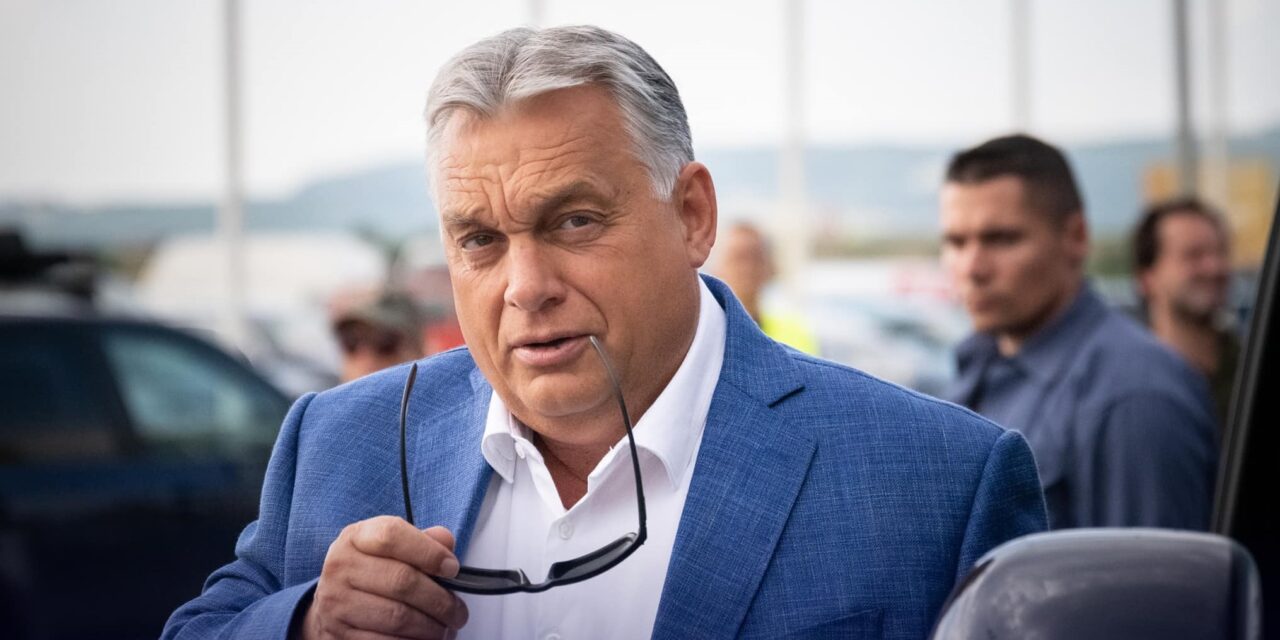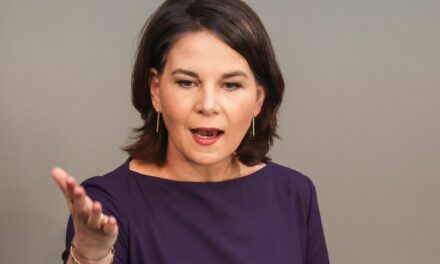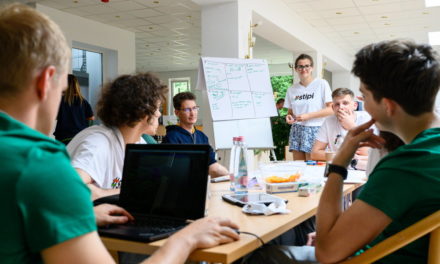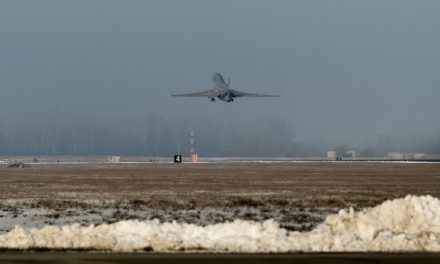On Saturday, at 10:30 Hungarian time, Prime Minister Viktor Orbán will give his presentation at the 32nd Bálványosi Summer Free University and Student Camp, who will presumably talk about important strategic issues and goals this year, as in the previous situation assessment.
Due to the coronavirus epidemic, the Prime Minister spoke again last year at the gathering in Tusnádfürdő, where he focused on the Russian-Ukrainian war. As he said, the West's strategy was that Ukraine could win the war with Anglo-Saxon trainers and weapons, the sanctions would weaken Russia, we would be able to deal with the economic consequences of the sanctions, and the world would line up behind the West.
Now, however, we are sitting in a car with all four wheels flat."
Orbán said. "The world is not only not with us, but it is demonstratively not with us," he said later in relation to how we handle the war, in which the Ukrainians want to involve as many countries as possible.
The prime minister also emphasized that the first and most important challenge is the issue of population and demography. "Our situation has improved, but there is no turning point, even though this is the alpha and omega of everything. If there is no change, the Carpathian Basin will be taken away from us," Viktor Orbán said.
Orbán on external threats
In 2019, the Prime Minister summarized the political battles of the past thirty years and designated the EU-level fight against migration as a task. Viktor Orbán spoke about the fact that the Hungarian nation has the political, economic, and soon will have the physical capabilities with which it can defend itself and with the help of which it can remain independent.
At the same time, he added: Hungary's staying on an encouraging path is threatened not from within, but rather from without, such as the EU's migration policy and economic measures. Orbán said then that difficult times are coming for the European economy according to all analyzes and figures that form the basis of all analyses. He concluded his speech by saying
the Christian struggle against the liberal worldview is the main task of the future.
Orbán predicted war
In his speech in 2018, held after another election success, the Prime Minister talked about the fact that they want to build not only a new system, but a new era, because that is what they were authorized to do in the election. At the same time, Orbán practically predicted the Russian-Ukrainian war. As he put it,
the Russians are trying to create security zones around themselves.”
One of the victims of this is Ukraine, which is moving towards the West. According to Orbán, the West is pursuing a primitive Russian policy, based on sanctions and security threats. Speaking about the situation in Europe, he said: "now the situation is that in the West there is liberalism, but there is no democracy.
Thirty years ago we thought that Europe was our future, and today we should think that we are the future of Europe.
said the Prime Minister.
In his speech held in 2017, he called the leading European question of the next decades who will live in Europe, whether the continent will remain European, and whether Hungary will be a country of Hungarians. He stated that the union must get rid of the influence of György Soros and then reform itself. Part of this is to remove those who are here illegally from the continent. "As long as I am the Prime Minister of Hungary, the fence will remain in place, we will protect our borders and Europe," stated Orbán.
Orbán on threatened nation states
In 2016, the Prime Minister warned that all political actions that want to take powers away from the nation-states must be stopped. Viktor Orbán believed that there is a crisis of elites and democracy in Europe and the Western world.
Europe's current political leadership has failed"
he stated in his presentation. He said that the continent has lost its global role and has become a regional actor, unable to protect its own citizens and its own external borders. In the best case, he is able to influence the events taking place in his environment. "Therefore, a European army must be created, which would be a real joint force," the Prime Minister emphasized.
In 2015, Orbán also spoke mostly about the danger of migration. As he said, what is at stake for us today is Europe, the European citizen's lifestyle, the survival or disappearance of European values and nations, and their change beyond recognition.
"Now the question is not only what kind of Europe we Hungarians want to live in, but whether there will be everything we call Europe at all. The European left sees immigration not as a source of danger, but as an opportunity"
he declared.
He added, "if the left had formed a government in Hungary in 2014, we would not recognize our country in a year or two, we would be like a refugee camp." Referring to the results of the national consultation at the time, the Prime Minister said: 95 percent of the respondents said that instead of immigration, support for Hungarian families and children is needed.
Illiberalism
In 2014, the Prime Minister gave his famous speech about the illiberal state. As he put it, "the Hungarian nation is not a mere set of individuals, but a community that must be organized, strengthened, and even built.
In this sense, the new state that we are building in Hungary is an illiberal state, not a liberal one.
It does not deny the basic values of liberalism, such as freedom, and I could add a few more, but it does not make this ideology the central element of the organization of the state, but contains a specific, national approach that differs from it.
A year earlier, in 2013, the prime minister promised to fully repay the IMF loan. He praised the new basic law, which is not a liberal but a national basic law, which balances rights and obligations.
Viktor Orbán also said that the weight and role of Europe was questioned, just as the primary role of the United States was also questioned. "If one looks at the budgets of the emerging Asian states, it can be seen that we are witnessing not simply a world economic transformation, but a very rapid world-military-political and world-power transition," he explained.
The prime minister listed the government's achievements so far, the introduction of foreign currency loans, the launch of the demographic program, strategic agreements with international companies.
The West is in crisis
In 2012, he spoke about a national renaissance in Europe, and it also became apparent that European nations do not really want to merge with each other. The prime minister then also mentioned that, in his opinion, Western Europe is "trailing in a vicious circle" from which it cannot find a way out.
The European crisis is essentially the crisis of Brussels, there is no one to imitate, there is no recipe for success in the West that could be transferred to Hungary"
- said Orbán, who believes that we must come up with the solutions.
One year after the victory in 2010, in 2011, he said that the Hungarians "sensing the change of era in their guts" decided in the election that an unprecedented unity and cooperation should be created, and this is called the "two-thirds revolution". The Prime Minister explained that Western solutions must be understood, but the situation is that Central Europe must also bravely take on a kind of pioneering role.
In 2010, he spoke about why Western-style capitalism was in crisis. "Politicians don't like to say this, businessmen even less, but in fact it's not about temporary financial disturbances, but about a very serious crisis of the system under which Europe has lived for the last one hundred to one hundred and fifty years," he explained.
According to him, what happened was that speculative money movements got an advantage over work and value creation, and instead of productive capitalism, a speculative capitalism was created as a result of the last few decades, the consequences of which we are now facing.
As he said
it is obvious that Europe must find a specific system of cooperation with the Russians",
which allows the potential of the Russian economy to be connected with the potential of the European economy.
Featured image: Viktor Orbán's Facebook page













